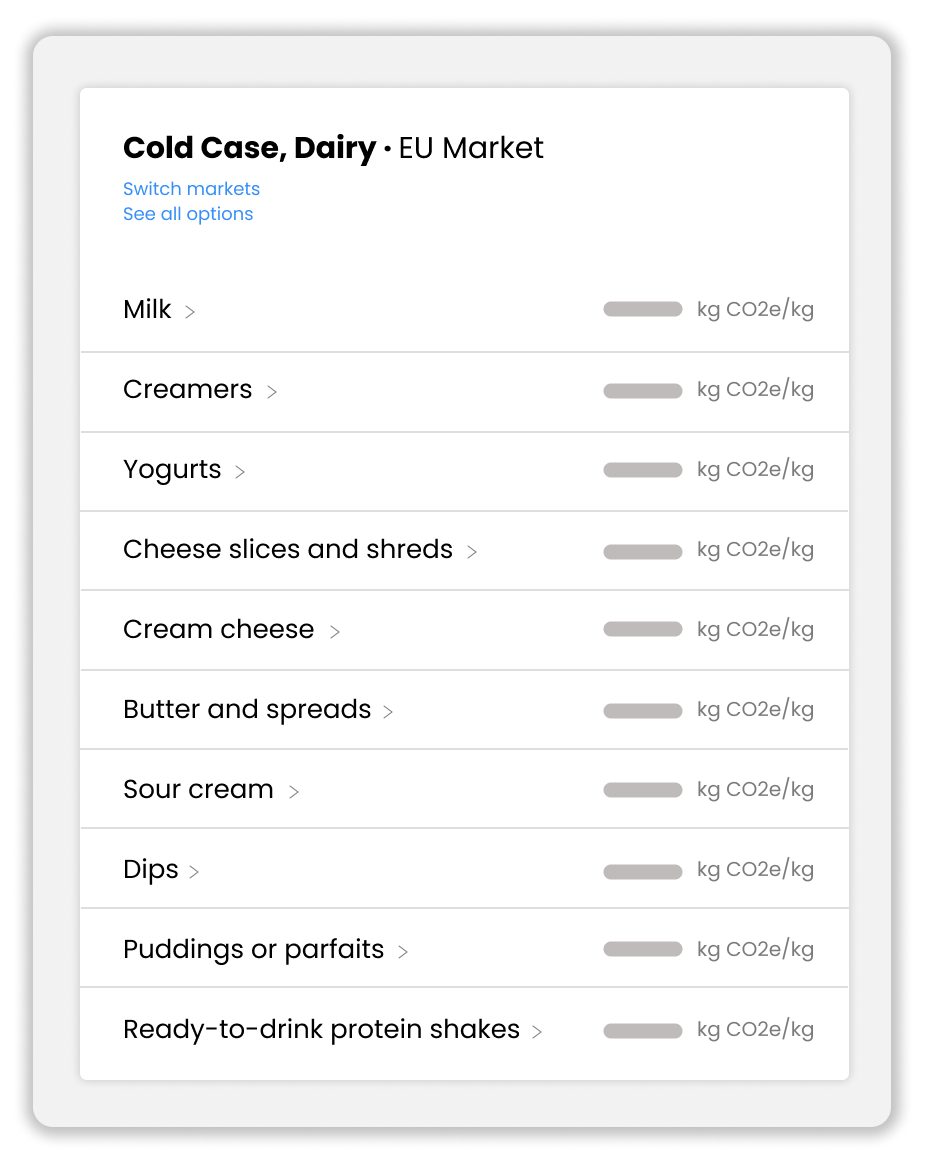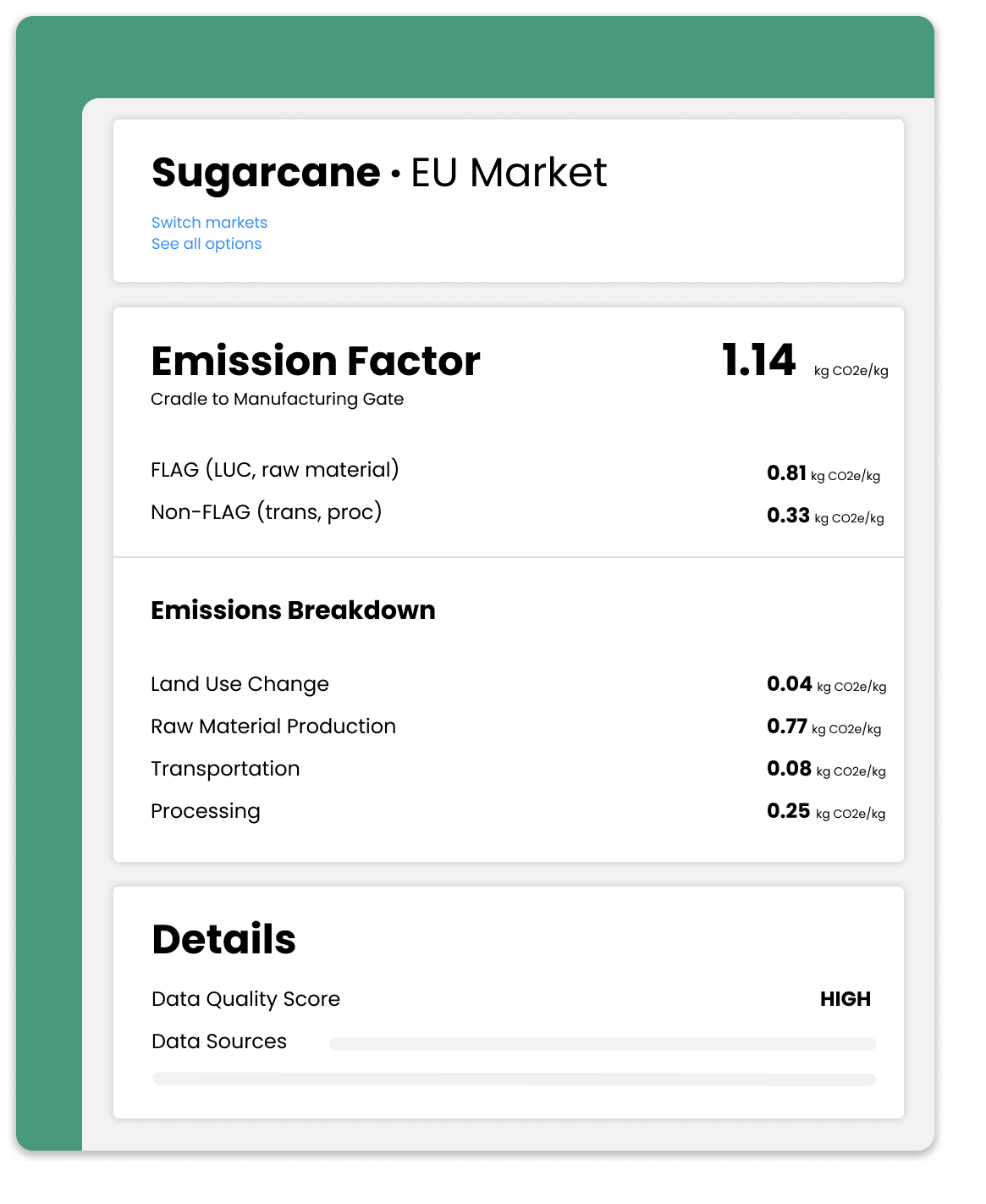GLOBAL CARBON DATABASE
Direct access to the world's largest agricultural emissions database
The Global Carbon Database delivers vetted emission factors for fast and credible climate reporting


Credible emissions data for food and agriculture
License the GCD to establish an emissions baseline for corporate carbon accounting and reporting. Identify hotspots, meet CDP and SBTi reporting standards, and prepare for future emissions reduction planning — all without a full-scale platform rollout.
Available with regionalized datasets, at the ingredient, product or category emissions level.
BENEFITS
Why the Global Carbon Database?
Quick Time to Value
Access audit-ready emission factors immediately
Start simple, expand when ready
Budget-friendly access to trusted data
Immediate identification of hot spots
Food System Expertise
Purpose-built for food and agriculture
Granular coverage including processed ingredients and researched ingredient concentrations
Built with HowGood’s Carbon Trust certified footprint methodology
Future Growth Pathway
Built on GHG Protocol, ISO 14067, and PACT frameworks
Seamless transition to HowGood’s full carbon accounting platform
Visibility into material hot spots for efficient reduction planning
Audit-ready and aligned to industry reporting frameworks
.png)








Frequently asked questions







.png)
%20Key%20insights%20for%20food%20companies%20(1).png)
